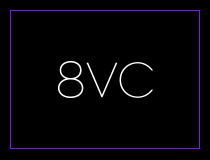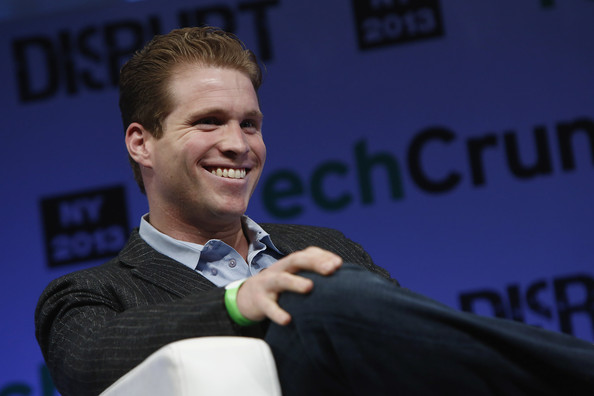Joe Lonsdale has had his fair share of ups and downs in recent years. Investors don’t seem to mind. Nearly a year ago, they quietly provided Lonsdale’s newest, early-stage venture firm, 8VC, with $425 million in funding for its debut fund, along with $50 million for a separate seed fund. The firm, which is run by five partners, has since invested a quarter of that capital in an array of companies, including, most recently, Synthego, a genetic engineering startup that provides scientists with genetic material used in their Crispr research.
Lonsdale declined to comment on 8VC’s fundraising last year. But last week, we spoke with him about the new fund and, to a much lesser extent, about Formation 8 Partners, which Lonsdale famously cofounded in 2011 with Stanford classmate Brian Koo and longtime venture investor Jim Kim before the three abruptly disbanded in 2015. One oft-cited reason for the firm’s demise: differing opinions about strategy.
Koo has since founded another firm: Formation Group, which hews most closely to Formation 8’s mission, which was to bridge the ecosystems between Asian countries and Silicon Valley. Kim has also cofounded a new venture firm called Builders, which we reported on last month. Its big idea: to help nascent companies gets sales and marketing staff involved early.
8VC’s mantra is simply, “The world is broken; let’s fix it.”
That approach helps explain its bet on Synthego. It also accounts for a perhaps more controversial bet on Hyperloop One, an ambitious company aiming to build faster, cleaner long-distance travel through a supersonic transit system that remains largely theoretical for now. (The well-funded company, which recently settled a lawsuit with one of its cofounders and several former employees, is currently engaged in numerous feasibility studies.)
8VC’s mission also underscores what Lonsdale most wants to focus on — the future. Given the recent past, it’s easy to see why.
A sharp turn
An associate of Peter Thiel from the time he was a Stanford student working at PayPal, Lonsdale’s star rose quickly. He helped Thiel start his hedge fund, Clarium Capital, as well as the data analytics company Palantir before cofounding three more businesses: the investment management platform Addepar; OpenGov, a start-up that sells software to help local governments manage data; and Formation 8. Little wonder that when Formation 8 announced its first fund, it was cited as the “hottest” venture firm to emerge since Andreessen Horowitz.
But Lonsdale’s rise came to a sudden stop in January 2015, when he was slapped with a sexual assault suit that he vigorously denied, and was subsequently banned from the campus of Stanford, where he graduated in 2003. The break-up of Formation 8 followed. Not long after, a series of pieces began questioning the health of Palantir, where Lonsdale remains an advisor.
The lawsuit was dropped 11 months later — along with the Stanford ban. OpenGov has gone on to raise roughly $50 million in funding. And if ever Palantir was in trouble, it now seems to be enjoying the kind of unfair competitive advantage that investors dream about, with Thiel today a consigliere of sorts to President-elect Donald Trump.

All the while, Lonsdale has continued moving forward, personally and professionally.
He was wed late last summer and is expecting his first child in spring.
He appears to have the support of a cadre of loyal colleagues. Fifteen of Formation 8’s 25 employees now make up the roughly 30 people who run 8VC. Jake Medwell — who is a partner at the firm along with Alex Kolicich, Andrew Oetting and Kimberly Scotti — suggests that the firm enjoys a degree of camaraderie that’s unique. 8VC is “run like a startup,” he says. “We all take part in the operations of the firm.”
Lonsdale has also received plenty of support from investors, some of whom are also part of a vast advisory network that 8VC has assembled to help its portfolio companies. Among others in that group are KKR founder Henry Kravis, former Citigroup CEO Sandy Weill, former Morgan Stanley CEO John Mack, and Intuit cofounder Scott Cook.
Now, like every young firm, 8VC just has to prove itself.
It’s a daunting task, though numerous investments out of Formation 8 have surely given investors confidence. Among its bets was Oculus VR, a virtual reality headset maker that was discovered early on by Lonsdale and Koo, who later joined the company’s Series A and B rounds. Less than a year later, Oculus was acquired by Facebook for a stunning $2 billion.
Lonsdale notes that another check — “my first as a venture guy” — went to Wish, the mobile commerce app. The startup, which is reportedly raising money from new investors, now has an annual run rate in the “middle single billions” of dollars, and it’s profitable, he says. (More on Wish here.)
Lessons learned
Lonsdale clearly attributes both successes to getting to know the companies’ founders before many other investors, which is why 8VC opted to managed a seed-stage program, even at its size. (Many venture firms with hundreds of millions of dollars under management opt to wait and talk with companies when they’re more mature.)
“For me,” says Lonsdale, “seed investing isn’t just a good return area but a big part of how we network in Silicon Valley. A lot of our best deals have come from being active in the seed stage.”
Lonsdale is sticking to one major thesis from Formation 8, too, which is what he calls the “smart enterprise” — or using digital data to measure, analyze, and aggregate large data sets to solve non-linear problems in everything from banking to healthcare to intelligence gathering.
Other areas of investment for 8VC include the crossover between IT and life sciences; one investment here is in Ubiome, a company whose kits allow people to sample their own microbiomes. Another is logistics (see Hyperloop One).
The firm writes checks of between $3 million and $30 million in some cases, with two of its biggest deals yet to be announced. What 8VC expects in exchange for its capital, says Lonsdale: between 15 and 25 percent of a startup.
As for the decision-making process, it’s fairly loose, evidently. Each of the five partners on 8VC’s investment committee gets a vote, with most investments coming down to what the majority wants to do. That said, if one partner feels strongly about an investment that the others question, “we don’t want to force unanimity,” says Lonsdale. “If someone wants to pursue something that’s really controversial, you want to give them a chance typically.”
8VC also has an “ethical bend,” as been reported, though Lonsdale is more reticent about this, explaining that while a startup’s principles are important to him, he worries that advertising as much invites “people to poke fun” at Silicon Valley, where he suggests that plenty of founders are attacking “hard problems.”
He points to Color Genomics, a startup whose genetics services help women and men understand their risk for the most common hereditary cancers, and which Formation 8 supported in its Series A round in the spring of 2015. “Everyone should get screened,” says Lonsdale, who lost his own mother to cancer eight years ago and says his wife is now aware of her own heightened risk for breast cancer and will be monitored for it more closely because of one such screen.
“Tech companies are surprising doctors who don’t even know about some of these things yet, and we can [replicate that success] in so many different industries,” he says.
Of course, talk with Lonsdale about hard problems invariably leads to questions about Lonsdale’s mentor-turned-cofounder, Peter Thiel, who famously complained years ago: “We wanted flying cars. Instead we got 140 characters.”
Thiel has repeatedly cited a lack of innovation as his reason for supporting Trump’s presidential win — challenging as it is for most of his peers in Silicon Valley to understand his rationale.
Does Lonsdale agree with Thiel, who is now a key member of Trump’s transition team? Is he, like numerous others of Thiel’s associates, talking with Thiel about how to shape Trump’s team, as has been reported?
If so, he isn’t saying right now. “I’m passionate about the issues going on in D.C.; there are definitely a lot of complicated issues” being thought through, says Lonsdale.
But “I’m not taking a public stance” on what’s happening, he adds.
